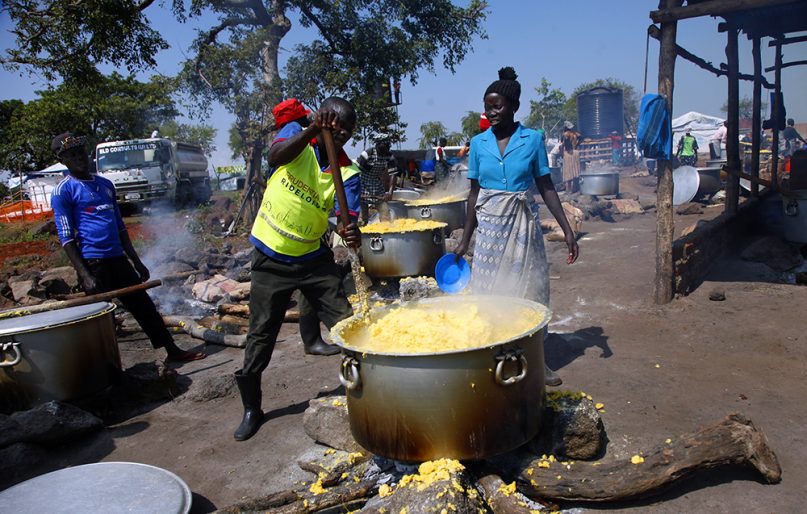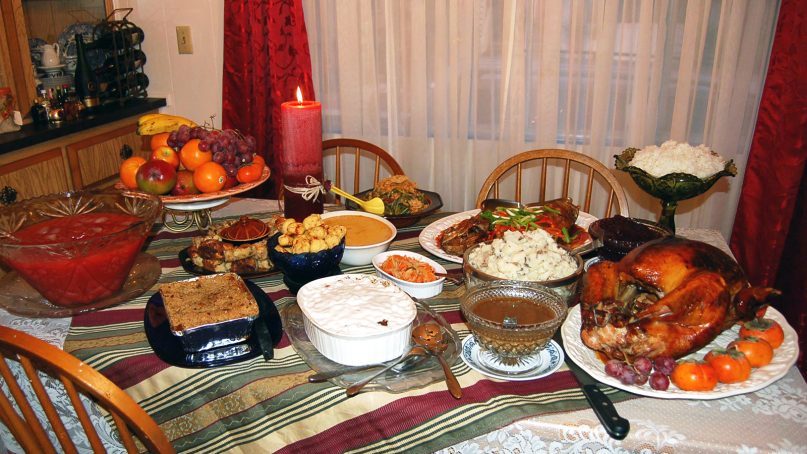(RNS) — My childhood was rather idyllic, at least as my memory serves me.
My father’s profession was in the marriage and family counseling field, and my mother’s work was in music. My parents moved my two older brothers and me to Azle (pronounced “AY-zəl”) – a community of 10,000 or so residents on the rural western edge of Fort Worth, Texas’ Cowtown boundary – just months after I made my human debut.
The people of our new hometown were solid — the kind of rural folk you read about in plaintive prairie novels, who build strong homes and good lives through the priorities of faith in God, loyalty to family and an honest workday. They worked hard, played hard and loved a whole lot.
Azle, at least through my childhood lens, was a gateway to the untamed American West. As kids, we spent most of our time outdoors, carousing through thickets of low-lying mesquite trees and cacti bramble. We would wander around, gazing at the westerly sky – a massive canvas stretched so wide that if I tried to digest its broad horizon my heart might actually explode from an overwhelming sense of gratitude for the goodness, and beauty, and belonging of this landscape.
Looking back now, I am fairly certain the generous time we were allowed for activities in the wild corresponded more with our mother’s desire for some peace and quiet, and a dab of alone time, than it did with our love of nature. But this was the place I first learned to call “home.”
The enormous beauty of West Texas exhibited a kind of friendliness for the body and soul, but this place alone did not define my home. Home, for me, was and is defined by people. Our family of five was my anchor, a solid core as I maneuvered through the growing-up years of my youth. And it consisted of accepting, fun-loving and mostly sane human beings.
In fact, my first realization that I belonged somewhere or anywhere, really, was when we gathered around the table for mealtimes.
Each evening, my brothers and I would pull up our chairs to partake of supper lovingly prepared by my mother (and at times, my father), and rapidly devoured by us. The fare my mother provided was by-and-large healthy. She was always considerate of the value of nutrition in each ingredient, and while health-conscious meals met our family’s practical needs, food set the table for much more than dining and dashing. Food extended an invitation to commune with one other – to talk, to listen, to ask questions, and to learn and understand new ideas.
The dinner table provided a safe space where we could express our thoughts, opinions and feelings. This act of communion I experienced during our evening ritual of eating was exclusive of no one, and inclusive of everyone. It was around the table where my tender heart first learned to trust the truths that I was loved, and accepted, and belonged – no strings attached.
I have been fortunate. Perhaps you have been fortunate, too. I have always been assured of my next mealtime. What I eat today will be replenished tomorrow.

Refugees make maize porridge donated by the U.S. Agency for International Development for South Sudanese refugees in the remote northwestern district of Adjumani, near the border with South Sudan, in Uganda, on Aug. 29, 2016. (AP Photo/Stephen Wandera)
This weekend is a good time to remember, however, that for more than 795 million people around the world, mealtime is not a reality. They suffer from hunger and food insecurity on a daily basis. Four historic famines are raging worldwide, affecting the lives of some 20 million people who are on the brink of starvation.
These numbers are easy to glaze over — yet another statistic of devastating world hunger — but they represent real people, in our real world, suffering from very real problems.
To compound the catastrophe, the Trump administration recommended cutting the Global Health account, which funds nutrition programs around the world, by 37 percent in its 2017 budget proposal.
Thankfully, through bipartisan consensus, Congress is restoring the funding and is even considering increasing it by $20 million. This is the first increase for nutrition in over a decade.
Consider this: In 2017 alone, the U.S. Agency for International Development reached 28 million children with nutrition programs. The expanded funding would afford more children with the promise of food consistently.
Why is food so important? Why should we share our resources of time and finances to ensure that every child in every community around the world is fed? Perhaps the line between feeding our stomachs and satisfying our souls is so narrow we dare not miss fulfilling one for the fear of forsaking the other.
So join me in urging your member of Congress to support and protect bilateral nutrition funding this year and advance U.S. leadership to help alleviate hunger in developing nations worldwide. May we utilize every resource possible, every margin available, each unspoken-for penny in our nation’s budget to assist our neighbors at home and across the world in providing a mealtime, every time.
The souls of our nation, nay, our world, just may depend upon it.
(Andrew Greer is a Dove Award-nominated singer/songwriter and co-creator of the innovative “Hymns for Hunger” Tour and has helped raise awareness and resources for hunger relief organizations across the country. The views expressed in this commentary do not necessarily represent those of Religion News Service.)





